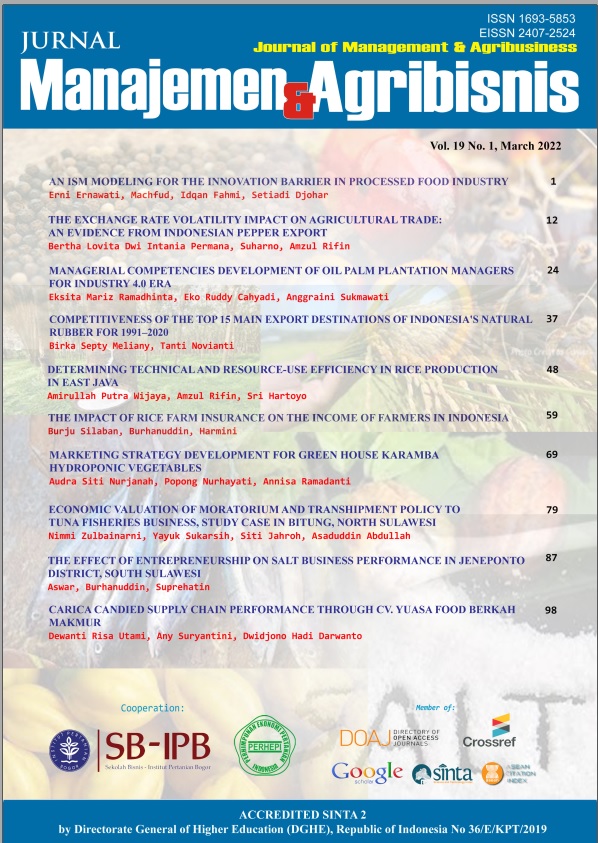Marketing Strategy Development for Green House Karamba Hydroponic Vegetables
Abstract
Green House Karamba, as a hydroponic vegetable producer, faces fluctuating sales volume and difficulty in reaching the end consumer. Therefore, Green House Karamba needs strategy formulation. This study aimed to: (1) analyze the ekisting marketing strategy of Green House Karamba based on marketing mix 4C; (2) analyze the competitive advantage of Green House Karamba based on competitive conditions; and (3) formulate a marketing strategy that can be applied by the company. This study focused on the products of hydroponic vegetables of Green House Karamba. Marketing mix 4C analysis, Porter’s five forces model, and marketing genius approach were employed for this study. Based on marketing mix 4C analysis, there were rooms for improvement in co-creation, communal activation, and conversation. According to Porter’s five forces model analysis, Green House Karamba’s potential competitive advantage were in terms of price and quality, relative independent production, and differentiation. The results of the previous analyses were considered for strategy formulation using a marketing genius approach. Based on marketing genius analysis, comprehensive marketing strategy and value proposition development were recommended for Green House Karamba. This study is expected to help Green House Karamba in facing competition.
Keywords: hydroponic, marketing genius, marketing mix 4C, marketing strategy
Authors
Authors who publish with this journal agree to the following terms:
- Authors retain copyright and grant the journal right of first publication with the work simultaneously licensed under a Creative Commons Attribution License that allows others to share the work with an acknowledgement of the work's authorship and initial publication in this journal.
- Authors are able to enter into separate, additional contractual arrangements for the non-exclusive distribution of the journal's published version of the work (e.g., post it to an institutional repository or publish it in a book), with an acknowledgement of its initial publication in this journal.
- Authors are permitted and encouraged to post their work online (e.g., in institutional repositories or on their website) prior to and during the submission process, as it can lead to productive exchanges, as well as earlier and greater citation of published work (See The Effect of Open Access).

